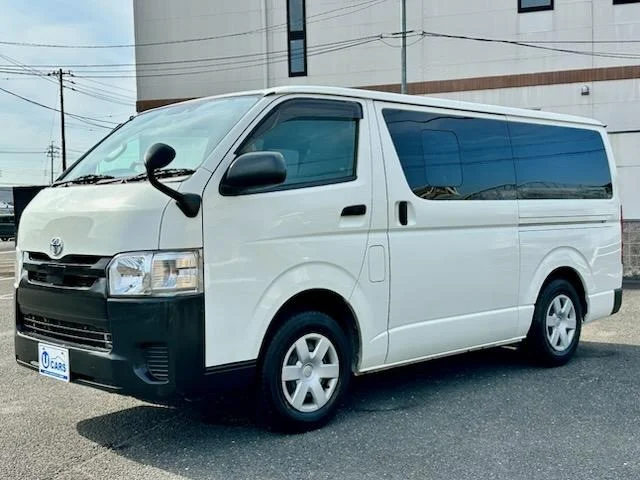Importing a used car from Japan is a smart move for many African buyers. Japan’s auction system offers high-quality, low-mileage cars at affordable prices—but to ensure smooth delivery and clearance, having the right documents is critical.
Whether you’re importing to Kenya, Uganda, Tanzania, Nigeria, or Ghana, this guide will walk you through the essential documents required to import a car from Japan to Africa, with country-specific tips to avoid delays, penalties, or loss.
Understanding the Import Process: A Quick Overview
Before diving into the paperwork, it helps to understand the typical import journey:
- Car Selection – Choose your car via auction or exporter portal.
- Payment & Export Preparation – Car is prepared, inspected, and documents are compiled.
- Shipping – Vehicle is shipped via RoRo (Roll-on/Roll-off) or container to your port.
- Arrival & Clearing – Customs clearing agents handle duties and inspections.
- Registration & Delivery – Vehicle is road-ready and delivered to you.
Having all documentation ready before the car reaches your local port reduces clearing costs, avoids storage fees, and speeds up registration.
Key Documents Required to Import a Car from Japan to Africa
Here’s a list of the most important documents you’ll need. Most are provided by your Japanese exporter or agent.
1. Original Bill of Lading (BOL)
This document proves shipment of the vehicle from Japan to the destination port. It includes:
- Vehicle chassis number
- Shipping date and route
- Port of origin and destination
- Consignee (your name or agent’s name)
Required to release your vehicle at the port.
2. Commercial Invoice
Shows the sale transaction between the buyer (you) and seller (exporter). Details include:
- Car make, model, year
- Purchase price
- Vehicle identification number (VIN or chassis)
- Exporter and consignee information
Required by customs to calculate duty and VAT.
3. Export Certificate (Deregistration Certificate / Japanese Registration Logbook)
Issued by the Japanese Transport Authority when a car is de-registered for export. It confirms:
- Original owner
- Year of first registration
- Full vehicle specs
- Mileage history
Required to prove authenticity and vehicle history.
4. JEVIC Inspection Certificate (For Specific Countries)
Japan Export Vehicle Inspection Center (JEVIC) ensures cars meet safety and environmental standards. Mandatory in:
- Kenya
- Uganda
- Zambia
- Tanzania
No JEVIC = Clearance rejection at Kenyan ports.
5. Pre-Shipment Inspection Certificate (Optional/Alternative)
Some countries may accept other inspection bodies like QISJ, ATJ, or EAA. Your exporter should provide this before shipping.
6. Insurance Certificate
Covers vehicle against damage or loss during transit. Not always mandatory but highly recommended.
7. Proforma Invoice / Payment Confirmation
Shows that payment has been made. Useful in disputes or proving transaction legitimacy to your local tax authority.
8. Translation of Documents (If Required)
Some countries (especially non-English speaking ones) require documents to be translated and certified.
Country-Specific Notes for Africa
🇰🇪 Kenya
- Must have JEVIC inspection before shipping
- Car must not be older than 8 years from the date of manufacture
- Required documents: BOL, JEVIC, Export Cert, Invoice, IDF from KRA
- NTSA & KRA clearances needed for registration
🇺🇬 Uganda
- Accepts cars up to 15 years old
- Mandatory pre-shipment inspection by JEVIC or EAA
- Vehicle must meet Euro 4 emissions standards
🇹🇿 Tanzania
- Accepts cars up to 10 years old
- Requires JEVIC certificate
- Tax based on engine size and CIF value
🇳🇬 Nigeria
- Cars should not be more than 15 years old
- No specific inspection body required but full documentation is needed
- Import duty + VAT + levies can total up to 70% of car’s CIF value
🇬🇭 Ghana
- Age limit: 10 years or less
- Requires BOL, Invoice, Export Certificate
- Optional inspection (but speeds up clearing if done)
How to Verify If Your Documents Are Genuine
Many fraud cases in Africa stem from forged or fake auction sheets and invoices. Here’s how to protect yourself:
- Work with verified Japanese exporters or use agents like CarsKenya
- Use JEVIC’s official portal to confirm inspection certificates: https://www.jevic.com
- Ask for scanned original copies and verify exporter licenses
- For Japan auctions, request real-time bidding logs or screenshots
- Double-check chassis numbers across all documents
Remember: If something feels off, it probably is.
Common Mistakes That Delay Clearance or Cost You Money
Avoid these pitfalls when importing a car:
- ❌ Missing BOL – Vehicle cannot be released at port
- ❌ No JEVIC (for Kenya) – KRA will not clear your unit
- ❌ Age Limit Exceeded – Rejection at port and extra demurrage fees
- ❌ Wrong name on documents – Must match your ID/passport or clearing agent’s name
- ❌ Unverified auction sheets – You may end up with accident-damaged cars
Avoid headaches by using a licensed clearing agent and a reputable import company like CarsKenya.
How Much Does It Cost and How Long Does It Take?
Shipping Time (Japan to Africa):
| Country | Average Time |
|---|---|
| Kenya | 4–6 weeks |
| Uganda | 5–7 weeks (via Mombasa) |
| Tanzania | 4–6 weeks |
| Nigeria | 6–9 weeks |
| Ghana | 5–8 weeks |
Estimated Documentation & Clearing Costs (Kenya Example):
| Item | Estimated Cost (KES) |
|---|---|
| Clearing Agent Fee | 20,000 – 25,000 |
| IDF Fee | ~2.25% of car’s CIF value |
| JEVIC Inspection | ~12,000 |
| NTSA Registration | ~18,000 |
| Port Charges | 50,000 – 80,000 |
| Total (Excluding Duty) | ~Ksh 100K – 150K |
Use KRA’s Import Duty Calculator to get duty estimates based on vehicle age, engine size, and value.
Final Thoughts: Be Document-Ready, Save Time & Money
Importing a car from Japan to Africa can save you hundreds of thousands—but only if you’re prepared. The difference between a smooth process and a nightmare often lies in getting your documents right from the start.
If you’re importing to Kenya or any other African country, work with experts like CarsKenya. We’ll ensure:
- All documents are accurate and original
- JEVIC inspection is completed
- Port clearing is handled smoothly
- You receive your car fully registered and ready to drive





